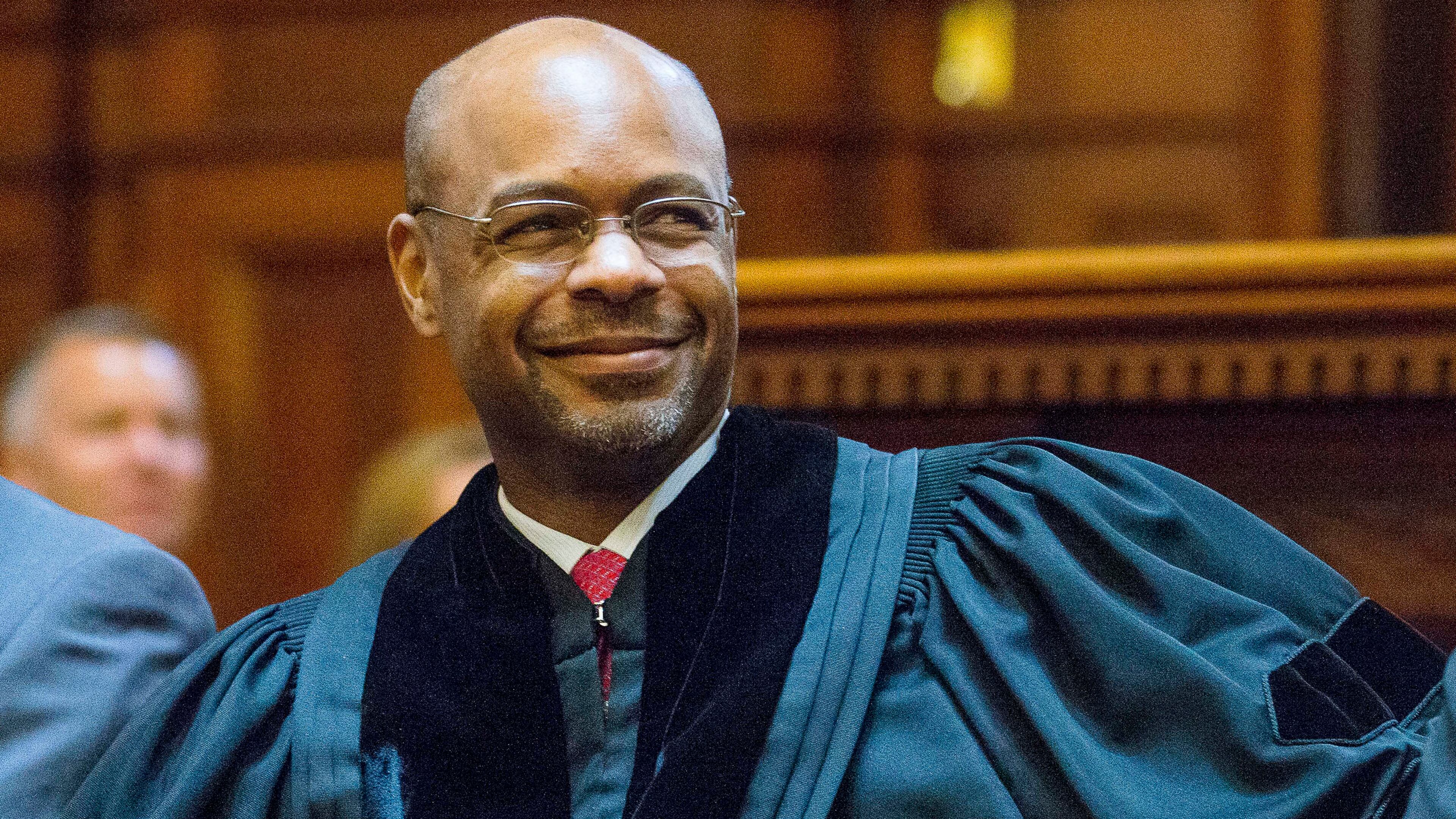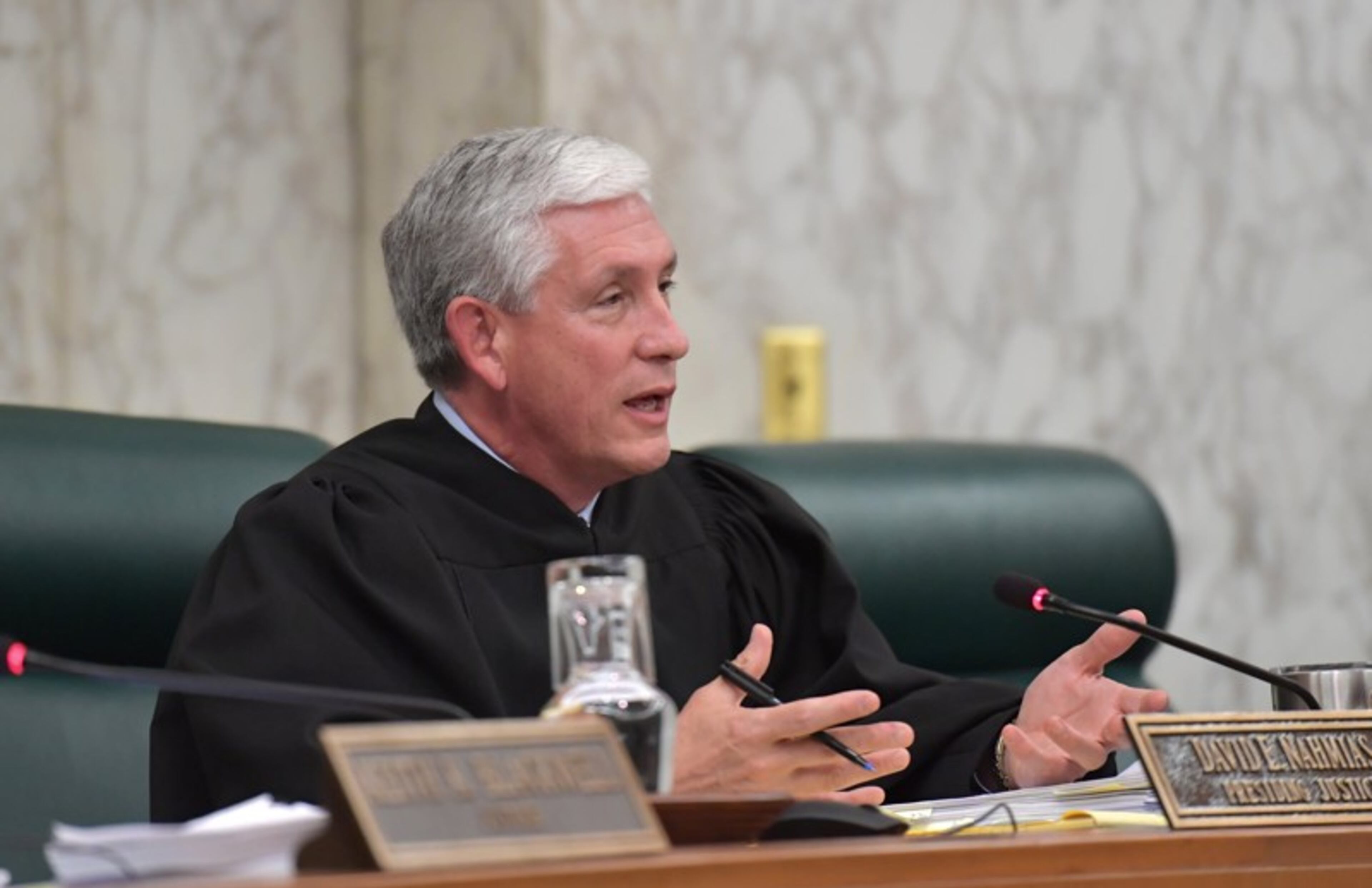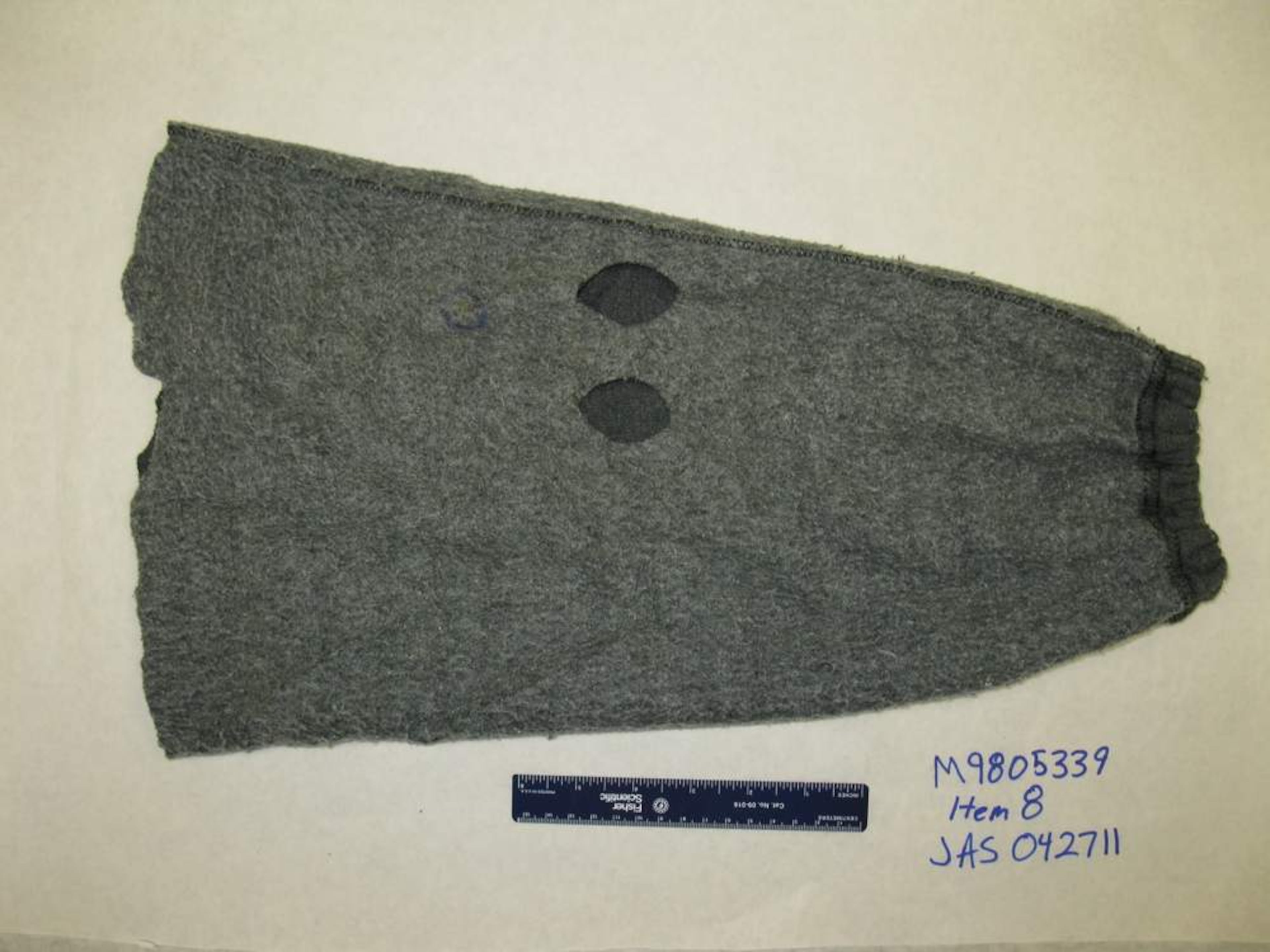GA attorney general defends murder conviction despite justices’ concerns

The message from the Georgia Supreme Court’s two leading justices to the state attorney general’s office was loud and clear: We have grave concerns about this murder conviction and we want you to reexamine the case.
The extraordinary opinions issued three months ago by Chief Justice Harold Melton and Presiding Justice David Nahmias involved the case against Devonia Inman. He is serving a life-without-parole sentence for the murder of a South Georgia woman 21 years ago.
The sister of murder victim Donna Brown and Inman’s mother are now calling on prosecutors to take the justices’ concerns seriously. Brown, a single mom who was the night manager of a Taco Bell in Adel, was shot and killed during an armed robbery in the restaurant parking lot.
“I definitely want them to get to the bottom of this,” Brown’s sister, Patsy Carrington, said in a recent interview with The Atlanta Journal-Constitution. “I want the right person to be in jail. Only God — and the person who did it — knows what really happened.”
Dinah Ray, Inman’s mother, said she wants her son to return to her home in Sacramento, Calif.
“I want justice for my son,” she said. “I pray to God that I’m alive to see him walk out of prison a free man.”
Attorney General Chris Carr and senior members of his staff “take very seriously the court’s concerns and are personally and fully reviewing the matter,” Carr’s spokeswoman, Katie Byrd, said.
Yet the attorney general’s office will also continue defending Inman’s conviction with help from Cook County District Attorney Richard Perryman, whose office obtained the conviction, she said.
Inman's case, which was chronicled by the AJC's Breakdown podcast, is striking because three of the four most important witnesses who testified against him have recanted their testimony. And Superior Court Judge Buster McConnell, who presided over the trial, has said he didn't believe the fourth key witness, who testified she saw Inman in Brown's car shortly after the murder.

At the 2001 trial, Inman’s lawyers tried to call on witnesses to testify that another man, Hercules Brown, told them he committed the murder. (Hercules Brown, who worked at the Taco Bell, is not related to the victim.)
McConnell did not allow those witnesses to testify. But years later, the GBI crime lab tested a homemade mask found inside Donna Brown's car — a mask prosecutors suggested was worn by her killer. The result: the DNA found on the mask belonged to Hercules Brown.
At that time, Brown was serving a life-without-parole sentence for the murder of two people during another armed robbery committed in Adel months after Donna Brown’s killing.

Armed with the new DNA evidence and the recantations, Inman’s lawyers asked McConnell to grant a new trial. But McConnell rejected that request and when his decision was appealed to the state Supreme Court in 2014, the justices unanimously refused to even hear it.
Melton and Nahmias, who were both on the court when it declined to hear Inman’s appeal, are among its more conservative members. Nahmias has the most prosecutorial experience, once serving as the U.S. attorney in Atlanta and as one of the Justice Department’s lead terrorism prosecutors after the Sept. 11, 2001, attacks.
It’s unclear what led the two justices to have a change of heart regarding the Inman case and its DNA evidence. Nonetheless, in opinions released this year on Sept. 19, both justices said the case needs a fresh look.

“The evidence that potentially connects a different person other than Inman to the murder in this case raises some very troubling issues,” Melton wrote. “The Attorney General is best suited to closely reexamine the case in order to ensure that justice is being done.”
Nahmias went even further. He said he has “grave doubts” about McConnell’s decision to let Inman’s murder conviction stand. And in a remarkable mea culpa, Nahmias expressed regret that the Supreme Court declined to hear Inman’s appeal five years ago.
“Prosecutors, however, may always exercise their discretion to seek justice — to do the right thing,” Nahmias said. He even questioned whether the state should continue resisting Inman’s efforts to get a new trial.
“Everyone involved in our criminal justice system should dread the conviction and incarceration of innocent people,” Nahmias wrote.

Nahmias said that as a justice, he has reviewed more than 1,500 murder cases. Of all those in which a new trial was denied, “Inman’s case is the one that causes me the most concern that an innocent person remains convicted and sentenced to serve the rest of his life in prison,” he said.
Former Deputy U.S. Attorney Larry Thompson, who is not involved in the case, said state prosecutors should follow the justices’ recommendations. “I’ve never seen anything like this,” he added.
Carr declined the AJC's request for an interview about the case "out of respect for the judicial process," said Byrd, his spokeswoman. She also indicated the attorney general's office is not ready to stop opposing Inman's latest appeal, now pending before a state court judge in North Georgia.
“We are ready to proceed with discovery for both parties and marshal relevant evidence to present at an evidentiary hearing,” Byrd said. “We think it important that the parties have a full and fair hearing so that the judge will have all of the information needed to decide the issues.”
Tom Reilly, a member of Inman’s new legal team, said he’s disappointed that the attorney general’s office will continue opposing the request for a new trial.
“We hope to have the opportunity to change the attorney general’s mind in the future, in light of the many highly troubling facts and circumstances that have been uncovered since Mr. Inman’s conviction,” he said. “We look forward to continuing the fight for justice for Mr. Inman.”

Carrington, Donna Brown’s sister, said she was unaware of the unusual requests made by the Georgia justices. “Nobody has contacted me or anything,” she said.
If Inman was indeed Donna Brown’s killer or was involved in the armed robbery, then “he’s right where he belongs,” Carrington said.
But if Hercules Brown was the culprit, he needs to be prosecuted, regardless of having already been convicted of two other murders, she said.
“If he’s the one who pulled the trigger, he needs to be held accountable for what he’s done — to the fullest extent of the law,” Carrington said. “My sister’s death doesn’t need to be in vain.”


